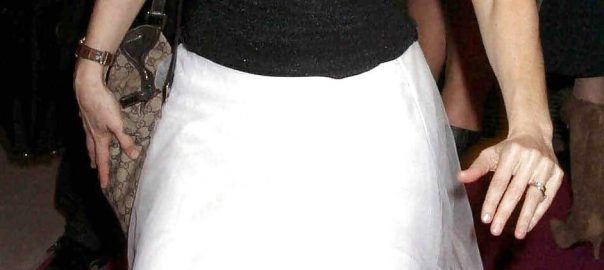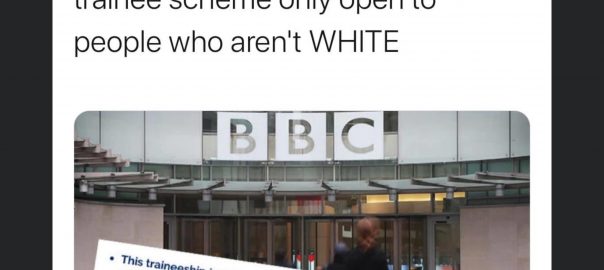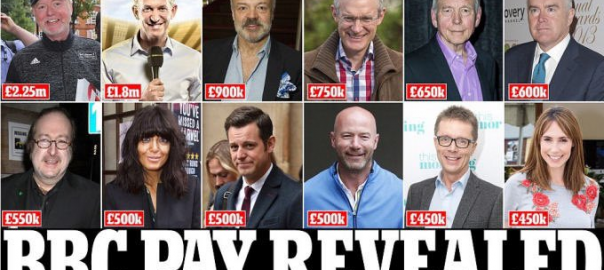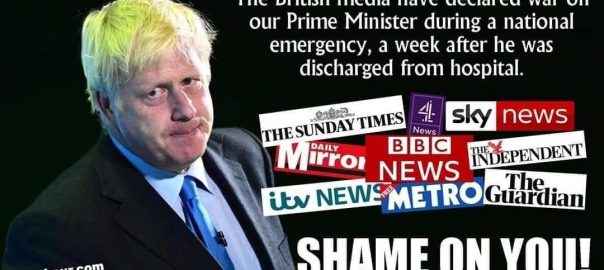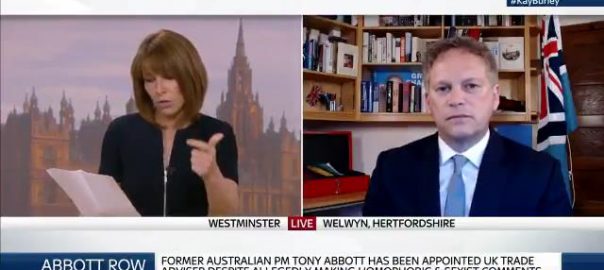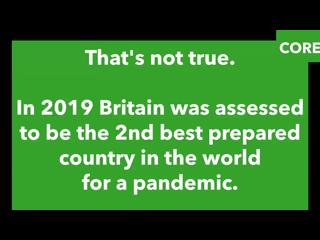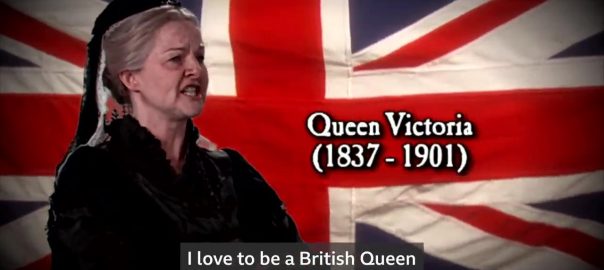The BBC has a major role, one so important that we are compelled by law to fund it, its real service is to national unity. The Corporation cannot unite us while becoming a mouthpiece for one side of a culture war. Nothing good will come of this troubling evolution in the BBC’s news values, not… Continue reading Media Bias Part 7
Tag: Propoganda
Media Bias Part 6
Dinyar Patel’s essay popped up on the Widget of Woke – the features sidebar that runs down the right of the BBC News website and is seldom without at least one piece a day on race or another facet of identity politics. This agenda reflects corporate priorities wholly unmoored from the priorities of most of the… Continue reading Media Bias Part 6
Media Bias Part 5
Critical race theory does not trip off the tongues of those outside the incestuous redoubts of academia, media and activism, yet on the BBC ‘white privilege’ has gone from contentious campus supposition to universal truth with no pause to test its validity or canvass the views of the country. At the start of the week,… Continue reading Media Bias Part 5
Media Bias Part 4
The Guardian’s Hadley Freeman has previously noted the sexist undercurrent of the ‘Karen’ meme increasingly being used by the BBC in particular and the Media generally. A Karen is a woman, a middle-class woman, seemingly a non-graduate woman, and a family-oriented woman. Karen thinks her kids can do no wrong. Karen shares Facebook memes to… Continue reading Media Bias Part 4
Media Bias Part 3
BBC Sounds produced an episode of the No Country For Young Women podcast in which presenter Sadia Azmat teed up a discussion with the question: ‘How can white women not be Karens?’ Businesswoman Amelia Dimoldenberg told these white women to ‘read some books’, ‘don’t be so loud’ and ‘stop attacking black voices’. Academic Dr Charlotte Riley… Continue reading Media Bias Part 3
Media Bias Part 2
On the issue of race in particular, its coverage is askew. I don’t mean simply that it is biased — anyone who follows Auntie’s reporting on Israel is aware of how shared political assumptions can shape broadcast output — but that it is openly biased, almost aggressively so. The BBC is not merely reporting these… Continue reading Media Bias Part 2
Media Bias Part 1
The times we are presently living in are the sort of times the BBC was made for: a Western political crisis in the middle of a global health and economic crisis. Throw in a landmark US presidential election and the UK’s final transition out of the European Union and 2020 is a news editor’s dream.… Continue reading Media Bias Part 1
BBC Bias Part 11
The BBC is losing me. It’s a sudden estrangement and an unwelcome one but I can’t seem to shake it off. The cause is the Corporation’s coverage of this thing that is happening that we still don’t have a name for but definitely should not call a ‘moment’. The butterfly effect from George Floyd’s killing is… Continue reading BBC Bias Part 11
BBC Bias Part 10
Mosey’s piece in the New Statesman addresses the question of bias directly. Emily Maitlis, he writes, laid out questions which the programme would address but “It was unambiguously clear what Maitlis’s own position was, and she stirred in words such as ‘fury, contempt and anguish’ to describe the national mood when a significant minority doesn’t… Continue reading BBC Bias Part 10
BBC Bias Part 9
There have been two interesting columns in the New Statesman, (one in the magazine, one online) on BBC bias and other issues about BBC News by Roger Mosey and Mark Damazer, both distinguished former BBC News executives. These are the best pieces I have read about the state of BBC News for some time. I… Continue reading BBC Bias Part 9
